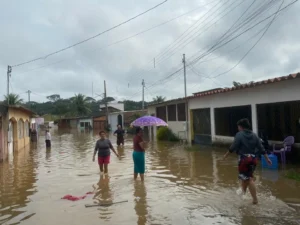By Sabrina Fernandes, Jacobin

This has placed the Homeless Workers’ Movement (MTST), which has grown in recent years, in the middle of a dispute. Its past affinities with the PT and its interpretation of Lula’s prosecution as the second phase of the 2016 coup ensure that the movement sticks with Lula. At the same time, PSOL members and groups have stood together with the MTST for years now, building occupations and protesting alongside one another, even when it was the PT government on the other side. Meanwhile, Guilherme Boulos, the MTST’s national coordinator, is considered PSOL’s preferred presidential candidate. This push-and-pull between the PT and the PSOL could strain the relationship of both parties with the homeless workers’ movement, which holds serious potential given the urgent nature of Brazil’s urban crisis.
The conundrums and contradictions that arise from melancholic thinking have put the Left in a defensive position. Every action it takes is constrained by the electoral conjuncture, resulting in persistent fragmentation. Worse, it’s still paralyzed by the question that even the grim results of the Porto Alegre trial did not put to rest: will Lula be a presidential candidate in 2018?
The English-language (as well as the German-language) coverage of Brazilian politics leaves much to be desired. Foreign correspondents and analysts frequently lapse into cliches and banalities in their depictions of Brazil, repeating right-wing talking points handed to them from well-connected elites depicting the PT and Lula as an authoritarian communist menace. Brazil’s many social problems, from inequality to high levels of violent crime, are reduced to a consequence of Brazil’s failure to modernize and rid itself of its archaic political culture, patronage networks, and corruption.
This roundtable seeks to give a platform for alternative voices in Brazilian politics; a taste of the different positions on Brazil’s large and diverse left, including the PT, social movements, and the radical left. Our aim is to give a sense not only of the stakes as Latin America’s largest economy plunges deeper into crisis, but also of the lessons that can be drawn from Brazil’s experience. From the power of right-wing anticorruption politics — of the kind Jeremy Corbyn might face after winning the next UK election — we can see some of the strategies and manners in which the ruling class seeks to delegitimize and neuter a left-wing government.
- Victor Marques and Maria Caramez Carlotto on the democratic crisis posed by Lula’s conviction;
- Plínio de Arruda Sampaio Jr, presidential pre-candidate for PSOL, arguing against the association of Lula with democracy;
- The National Coordination of the Homeless Workers Movement on why Lula’s conviction doesn’t hold water;
- Tamires Gomes Sampaio of the Lula Institute on the historically racist nature of Brazil’s judiciary;
- Daniela Mussi, editor of October Magazine, on the paralyzing questions facing the Brazilian left
- Our exclusive interview with Fernando Haddad, the PT’s rumored replacement for Lula in the presidential race
Jacobin covers politics with an internationalist approach that few other publications can match. All this takes a tremendous amount of time and resources, so if you appreciate this work, please consider donating to help sustain it.
Photo: Midia Ninja




